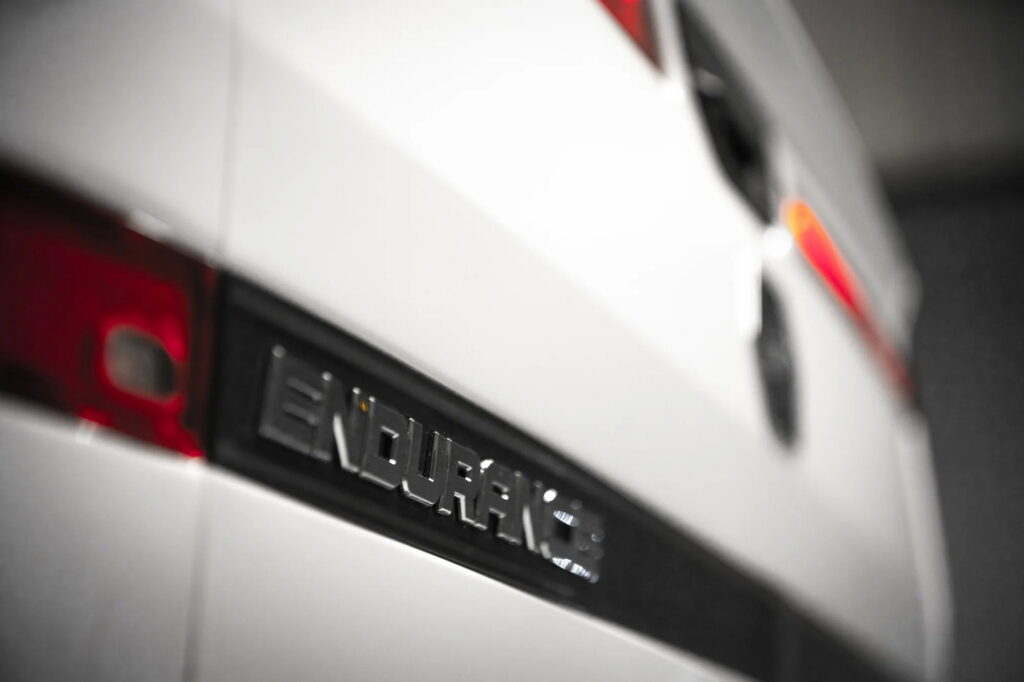To say that things are going badly for Lordstown Motors is to put it mildly. Now, following its decision to file for bankruptcy, it has come to light that the automaker may have accidentally sold a majority of its shares to Foxconn for pennies on the dollar.
As the name suggests, Lordstown was founded in Lordstown, Ohio, and started developing electric pickups in a former GM plant. However, a number of scandals rocked the company and in 2021 it sold 10 percent of itself to Foxconn.
As the electric vehicle manufacturer’s struggles continued, the deal soured, with recent reports claim that the head of a Foxconn subsidiary refused to even meet with Lordstown’s CEO after he traveled to Taiwan, per Bloomberg. Over time, the American startup’s shares slid so far that it was at risk of being delisted on the Nasdaq stock exchange, which could have torpedoed its deal with Foxconn.
To keep itself listed, Lordstown performed a reverse stock split, which effectively combines shares – in this case every 15 shares were turned into one – inflating their value, and keeping the company on the Nasdaq exchange.
Read: Lordstown Motors Initiates Reverse Stock Split In Effort To End Dispute With Foxconn

The plan may have kept Foxconn on the hook for the $47.3 million it had agreed to pay Lordstown for 10 percent of the company, but it may now regret that. Although it is common that following a stock split, all figures are adjusted to keep the spirit of active deals alive, the Taiwanese company is arguing that it is now entitled to 62.7 percent of Lordstown, according to a lawsuit seen by The Financial Times.
While Lordstown argues that Foxconn should pay $26.40 each (15 times the $1.76 originally agreed to) for 1.79 million shares (the original 26.9 million shares divided by 15), Foxconn told it in a letter earlier this month that it does not see any clause in its contract requiring the terms of the agreement to be adjusted for the stock split.
Foxconn believes that it should still be allowed to buy 26.9 million shares, even though they are now proportionally more than was agreed to, for the same $1.76 each, effectively giving it two thirds of the company for $47.3 million. In its suit, Lordstown does not point to a clause saying that the figures must be adjusted following a stock split, but it does point out that the agreement was for less than 20 percent of the company.
It also points out that if Foxconn’s position is found to be the correct one, then it could have simply split its stock and forced its investor to pay hundreds of times more than each individual share was worth for a tiny proportion of the company. It calls this “an absurd interpretation of the Investment Agreement.”
In fact, Lordstown goes even farther, accusing Foxconn of “sabotage.” The American company still holds animosity against its investor for dragging its heels in getting the all-electric Endurance pickup off the ground, for planning to sell competing EVs in America, and for attempting to “starve it out of existence.”
Not everyone is convinced that Foxconn’s motives were Machiavellian, though. Sam Abuelsamid, an analyst at Guidehouse Insights, thinks that Lordstown should have known that Foxconn might not have been a good partner based on its history, per Autonews. Moreover, the company might not have been starving the American startup; it might have just not seen the point in trying to save it.
Maybe Foxconn “just decided not to throw good money after bad to try to save Lordstown because they figured it was just probably not worth the effort,” Abuelsamid said.
Whatever the truth of the situation, now that Lordstown has filed for Chapter 11, it is looking to sell off its assets. With Foxconn a potential buyer, the startup will have to negotiate a better price with the investor, which may be difficult given their past.





